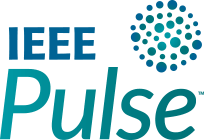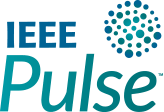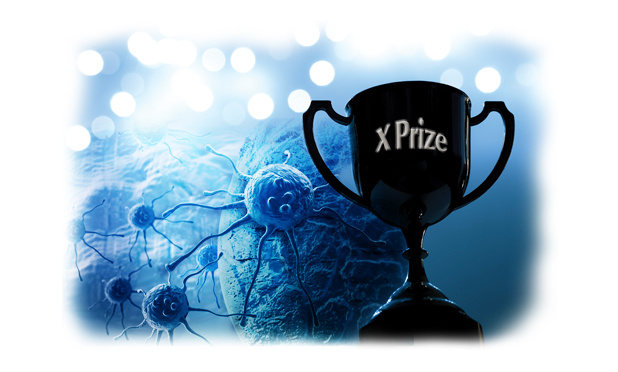According to the National Cancer Institute, 4 million people die of cancer worldwide every year—almost 500 every hour. But the most shocking thing about that statistic is this: more than a third and possibly even the vast majority of those deaths could have been prevented through sufficiently early detection. Now, a new competition aims to turn that situation around.
According to 2016 figures from the U.S. Centers for Disease Control and Prevention, cancers that are detected in the latest stages have only a 10% five-year survival rate, while those that are detected early—in stages 0 or 1—have a 90% survival rate. Yet the vast majority of funding both for basic cancer research and for biomedical industry research and development is focused on therapies (mostly pharmaceuticals), with much less going toward diagnostics. For example, the U.S. Food and Drug Administration’s cancer-related approvals over two and a half years included 29 for treatments, three for comparison of diagnostics, and none at all for early-stage detection systems.
A New Incentive: Competition
That’s where the idea for a competition comes in. In 2016, a team of doctors, entrepreneurs, and others realized there was something wrong with the existing incentives and started working out details for a way to provide a different set of incentives.
While the odds of any given cancer drug development program achieving success are vanishingly low, the possibility of enormous profits from such treatments makes the gamble worthwhile. A new early-diagnostic test, on the other hand, can face similarly steep development and approval costs, but with only a small fraction of the payoff. For drug companies, there’s not much of a business case to be made for investing in the diagnostics.
But what if there was the potential for a very lucrative prize, not to mention a boatload of free national and international publicity? That’s just what this group of “visioneers” (as the XPrize Foundation refers to those who design concepts for new competitions) came up with. The team, led by Daniel Kraft, a Stanford- and Harvard-trained pediatric oncologist as well as an inventor and entrepreneur, spent months thrashing it out, and, in 2016, the XPrize Foundation accepted it as their top proposal (out of nine detailed proposals submitted that year) for a new prize offering (Figure 1). The new competition, called the Cancer XPrize, aims to award a total of US$100 million in prizes and hopes to have an official launch this year, although the details are still being finalized. The goal, according to the foundation, is for “[t]he winning Cancer XPrize team [to] develop scalable and culturally sensitive solutions to rapidly, accurately, and affordably screen for early cancers where intervention can reduce human suffering.”
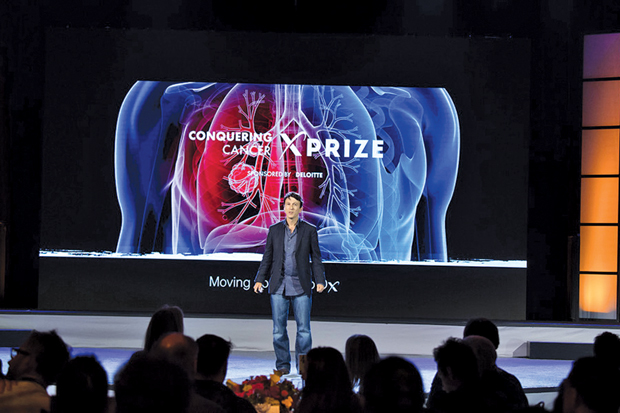
Such prizes offer one of the few ways around the lack of incentives for the development of such early-detection systems, explains Kraft, who led the team in working out the concept for this cancer detection prize. Kraft chairs the medicine track for Singularity University in California and has multiple patents on medical devices from his work on the faculty of the Stanford University School of Medicine. He also has founded businesses that include IntelliMedicine—a company focused on enabling data-driven, integrated, personalized health and medicine—and RegenMed Systems.
“The foundation tries to leverage and accelerate with prizes things that otherwise wouldn’t be worked on,” he says. So when the Deloitte company, which had been supporting some XPrize development work, first approached Kraft about spearheading the development of this new prize—which will be, if they meet their targets, the largest prize package yet awarded by the foundation—he readily agreed. “I’m an overemployed person,” he says. “As soon as they asked, I said, ‘Sure!’”
As luck would have it, just at the time when Kraft and his team of experts (Figure 2) started working on the XPrize idea, then President Obama announced the launch of the so-called Moon Shot for Cancer under the leadership of Vice President Joseph Biden, a project with similar goals of accelerating progress in cancer research, including detection. Biden had a very personal incentive for making that a priority, having recently lost his son Beau to a cancer that was detected too late. And, as part of that national initiative, the American Cancer Society contributed US$600,000 toward organizing the new cancer prize.
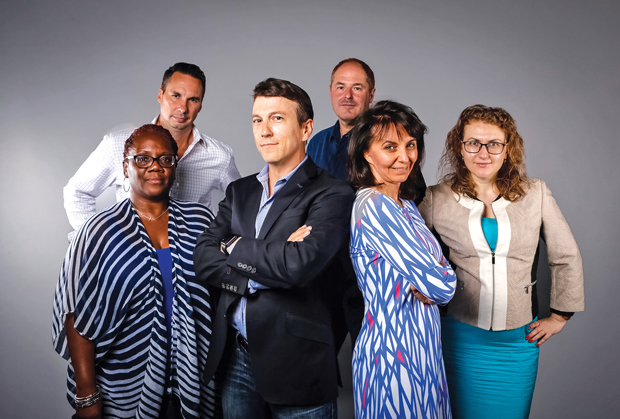
The vision for this XPrize, Kraft says, is that it will lead ultimately to cancer screening tests “that are as easy and accurate as a pregnancy stick.” The two most widely used cancer screening tests today, he points out, are colonoscopies and mammograms, which require expensive and elaborate equipment, as well as trained technicians, and whose basic technology has changed little in decades. With the new incentives, the hope is that some of the cutting-edge new approaches that have been applied to other areas of biomedical research can finally lead to some significant new early diagnostics.
Cancer XPrize Competition: The Details
The idea is to have tests that meet three key criteria: they need to be
- inexpensive enough to be easily available to populations around the world
- fast enough to provide results on the spot or close to it
- accurate enough to avoid both false positives that could lead to unnecessary treatments and false negatives that miss a cancer that might have been treatable.
The rough targets are a test that costs lower than US$24 and requires no more than 24 h for results. “If you’re in a rural village in Africa and had to walk a long way to the clinic, you don’t want to have to wait around for weeks for the results,” Kraft says.
The competition will span the next four years, and several substantial intermediate prizes will be awarded for progress in the interim, explains Kraft. “There will be microprizes along the way, not just one big final splash. We’re going to get contributions from around the world—both support for the contest and entries to compete for the prize.” Deloitte remains a lead sponsor of the prize, and, as they describe it, “The prize will address market failures of siloed ecosystems, regulatory complexity, misaligned incentives, and barriers to entry for new ideas.”
How will the teams go about creating such inexpensive, quick, and reliable tests? There are no limits or preconceptions, and the teams can choose whatever kinds of technological approaches they like. They can look for signatures of very specific cancer strains or try for broad diagnostics for multiple cancers.
They could use microfluidic devices to send small volumes of fluids—blood, urine, or saliva—through a battery of different tests for signatures of such things as immune system reactions, abnormal levels of particular signature proteins, and so on. Or they could use increasingly cheap and speedy DNA-sequencing technology to try to find genetic markers that signify cancer. Or perhaps they could use fluorescent nanoparticles that would glow a particular color in response to cancer cells, revealing not only their presence but their location and distribution. They might also use artificial intelligence to analyze the results of various kinds of screening tests, from chemical analysis to image analysis of CT scans or MRIs. And so on.
All of the latest tricks of biotechnology are up for grabs. Teams can go their own direction, and many of those that don’t end up winning the top prize money could nevertheless provide significant advances in cancer diagnostics, the organizers hope.
Judging the Competition
Judging will not be simple, especially when dealing with a disease that often takes years and even decades to develop. In part, the judges will do this by using blood and other samples taken from patients who are known to have later developed cancer and from others who are known not to have.
“What does it mean to say you’ve detected cancer?” Kraft asks. As researchers have found after decades of practice, detecting prostate cancer, for example, in many cases is of no clinical use, as such cancers are often so slow-growing that medical interventions do more harm than good. “We want to make sure we’re setting the balance the right way,” and not rewarding tests that over- or underdiagnose, Kraft continues.
The prize team hopes to foster broad diagnostic tools. “They’ll probably be a combination, to get multiple cancer types,” Kraft says. For the judging, rather than running a given system through hundreds of different individual tests, for example, they might give the team 100 samples, with 20 different cancers present somewhere among them, to see how many a given system can spot.
According to Kraft, part of what makes the task so challenging is that recent research has made it clear that, rather than the few dozen kinds of cancer that had been known, the disease really exists “in thousands, maybe millions, of subtypes.” One challenge for the prize officials has been keeping up with the rapidly developing pace of research to make sure the prize goals are challenging enough but not too challenging. They want to ensure they’re not providing incentive prizes for something that was already in the development pipeline anyway. The whole point is to spur research that otherwise might not have happened at all or, at least, as soon.
And, Kraft says, at the end of the four years, “even if no one wins the grand prize, it’s going to speed up research on new approaches.” And that almost certainly would lead to preventing at least some of those 500 needless deaths happening every hour. “My hope is it will speed up the development and bring something to market that could impact millions of lives,” he continues.
As the XPrize Foundation puts it in the prize description, “The Cancer XPrize will disrupt the market and make early cancer detection available to everyone, so that a cancer diagnosis is no longer a death sentence—rather, the technology will allow cancer patients to seek early treatment options so they can go on to live happy, productive, and healthy lives.”
